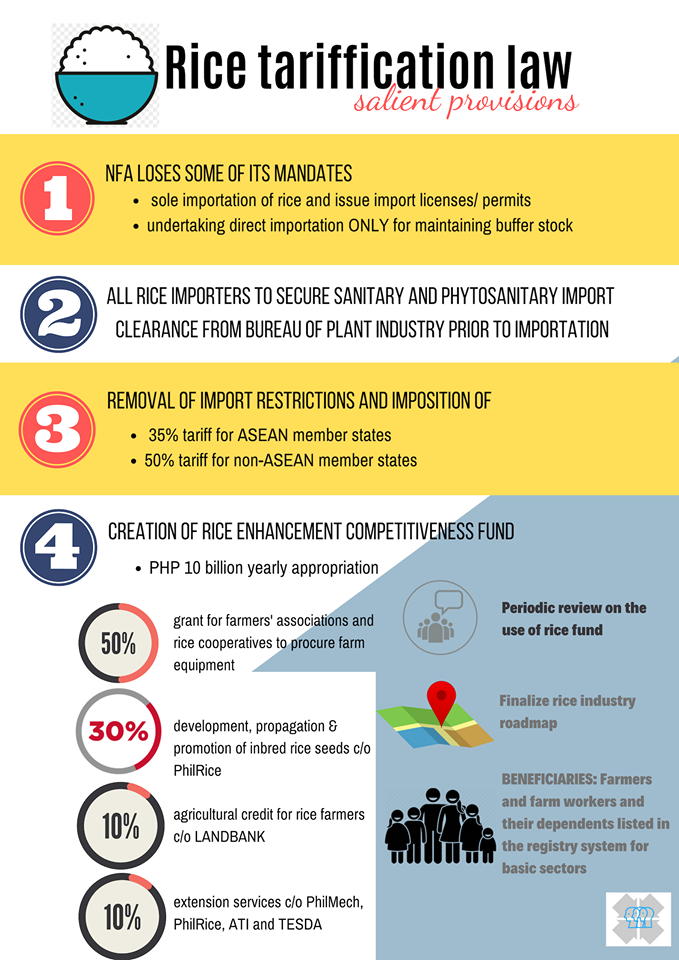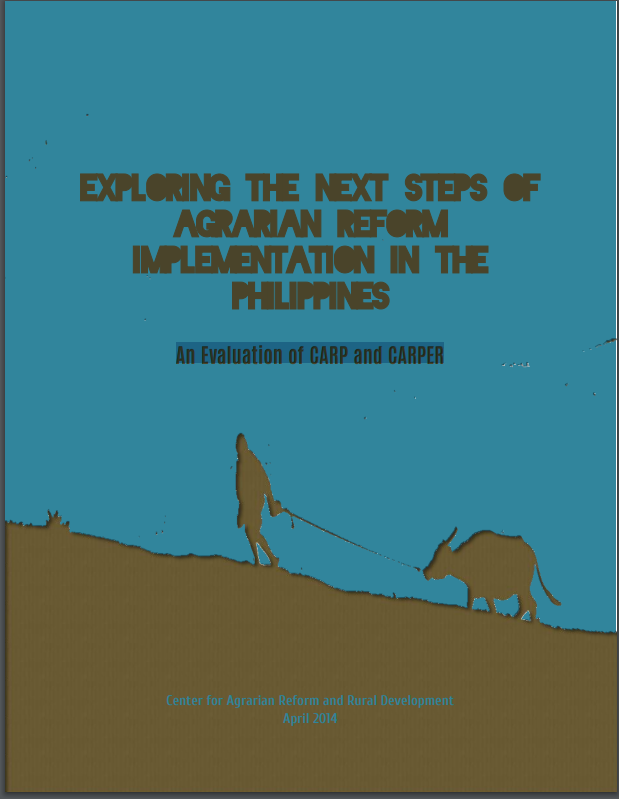
- If we open for importation, NFA will not have sole control on the amount of rice to be imported. This will minimize corruption, and will address rice shortage. Prices will also be stabilized if there is plenty of rice in the market. Businesses will also less likely to hoard under such circumstances.
- Right now, we are not earning from NFA's QRs. If we open up and tariffy, we will be able to generate funds to support our local rice farmers. The proponents project that we will be able to mechanize and improve our production in 6 years, because there are funds that are already available.
- Exemption to WTO is not free. In exchange of these concessions, we were forced to open up our market to accept other commodities - poultry/ livestock and any other commodities and we get almost no additional benefit from it.
- Current strategies to improve the rice sector are already failing. We still have lots of farmers being forced to sell their land for lack of support. Rice farming has not mechanized. On the consumer side, NFA's QRs have not been able to curb down or control rice prices. If we adopt a new policy, we can have better prospects.
OUR RESERVATIONS:
- The proponents believe that we will be able to mechanize fully within six years. How do we bridge the transition period? We're opening up to a new bunch of players, and we have not really prepared our farmers. Six years is a long period. By then, they may have already sold their land. There is no provision in the law on the safeguards for small-scale farmers when their products compete with the influx of imported rice products. We also need to consider that there is a sizeable local industry on rice by-products (such as feeds). How will these potentially impact them?
- Essentially, while this bill is being advanced, the government has not moved an inch on the National Land Use Bill, which would have rationalized land use planning all over the country and prevent the undue conversion of land. This should complement the other. The fact that Sen Villar is actively pushing for this (and is not hearing NLUA) casts doubts.
- The bill specifically provides support for farmer associations. What will happen to those without? There is no provision to organize rice farmers, or even reference of the bill to the need to invest in organizing these farmers so they can avail the services.
- How will this not duplicate services that are already being amply provided in some areas (while there are none in other areas)? How do we ensure (considering the current norm in the government) that this will not be another "fertilizer fund scam"?
- There is no provision within the 10 billion fund (there is a list of items that the fund can fund) on crop insurance, when we all know that every year disasters claim a significant part of farmers' income.
- The equipment to be procured (as part of the proceeds of the fund) is already stated. There is no room to allow the farmers to identify what they need.
If we are in if for the long haul, why can't this law complement the #NLUA?
We prepared an infographic that you can download and use to outline the salient provisions of the law.
We thank Senator Leila de Lima, Chairperson of Committees on Justice, Education and Rural Development for granting us time to discuss the subject matter.



